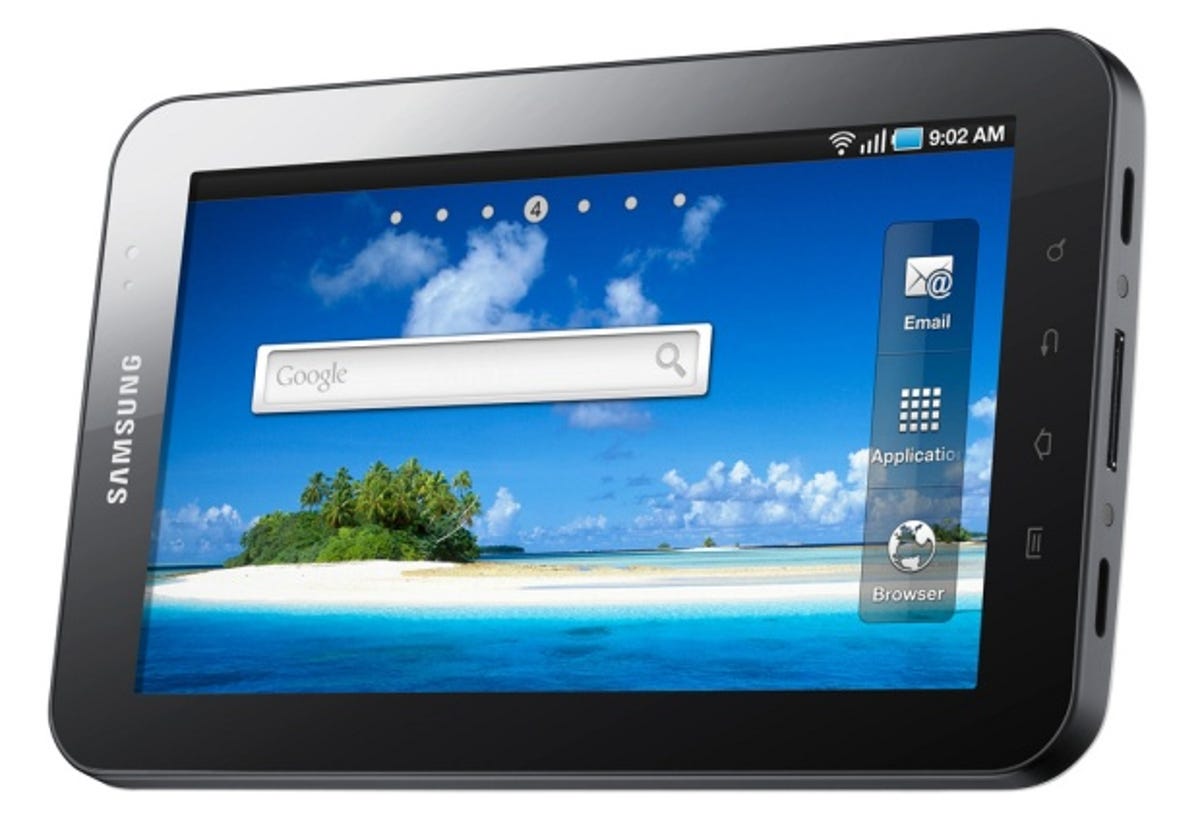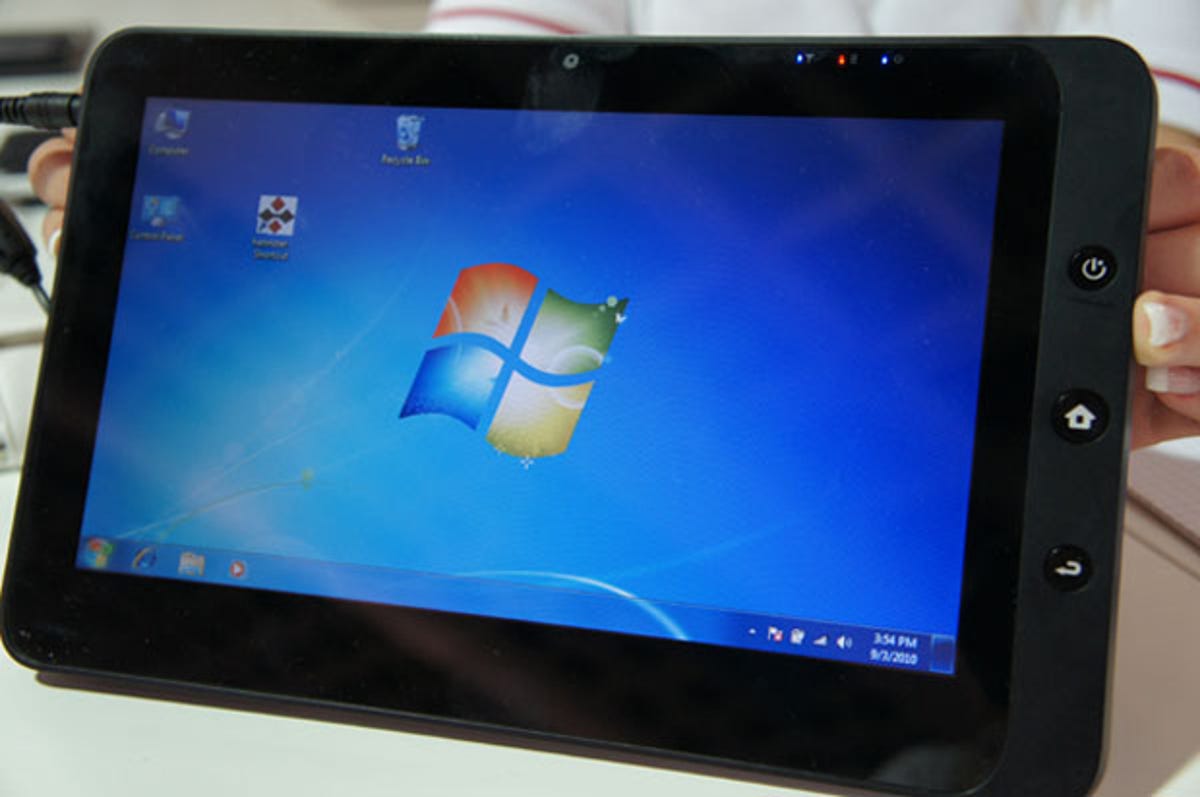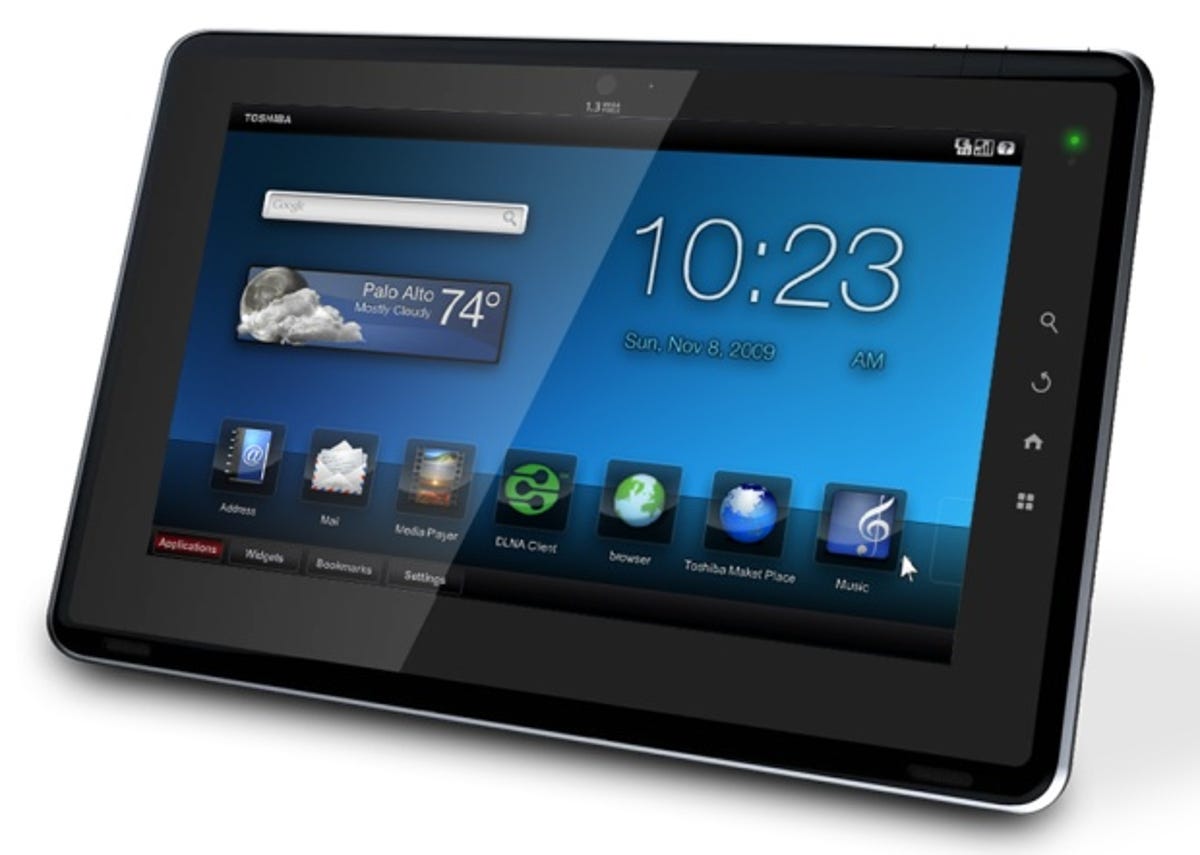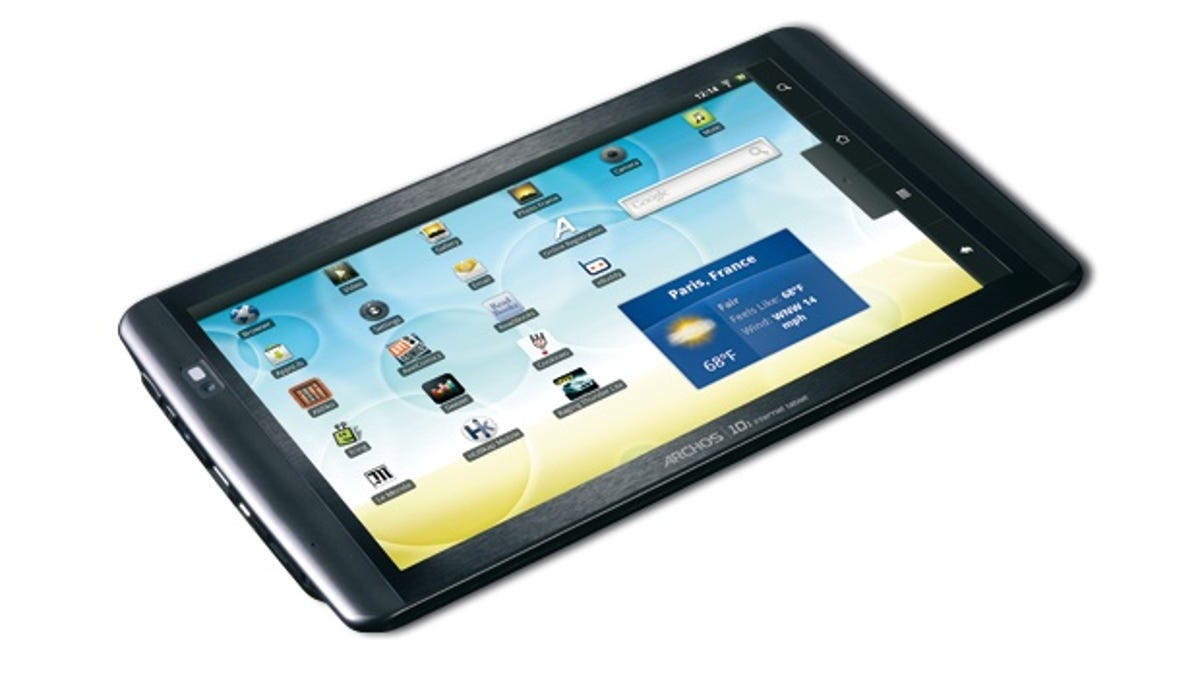
Finally, the Android tablet army is amassing. After a slow start, compared to how quickly Android popped up on heaps of great phones, it’s at last time for the mobile operating system to hit the big screen.
We’ve taken a look at the current crop of Android tablets that are battling for our hand-earned dosh, from the most recent to the best of the Christmas contenders. Keep coming back to this article as we update it with the latest and greatest slates.
Dell Streak
The Dell Streak dances on the border between the kingdom of small tablets and the realm of giant mobile phones. It packs a 5-inch touchscreen, which means it isn’t quite big enough to take on the 9.7-inch Apple iPad when it comes to watching video or reading ebooks. But the screen provides plenty of space if you just want to stretch out a tad while surfing the Web or checking out Facebook.


Also, because you can wrap your hands around the Streak, you can type with both of your thumbs at the same time, rather than awkwardly resting it on your lap and typing with two hands, or typing one-handed like an extra in Star Trek. The Streak is more portable than its bigger rivals too. It can actually fit in a pocket if you have baggy jeans.
When the Streak first arrived, we decried its slightly out-of-date version of Android, but it’s since received an update to Android 2.1. For those of you keeping score, the latest version of Android is 2.2, but few devices other than the Google Nexus One smart phone have it yet.
We didn’t fall in love with the Streak’s user interface, which doesn’t have the efficiency of the default Android UI or the slick good looks of the iPad’s offering. But it’s still usable, and the screen is zippy and responsive. Overall, the Streak didn’t blow us away, but it does what it says on the tin and — best of all — it’s available to buy in the shops right now.
You can pick up the Streak for £450 SIM-free, or for £400 on a pay as you go deal. It’s also available for free on a £35-a-month voice-and-data contract from O2, or for free on a £25-per-month contract if you don’t want to use it as a phone.
Samsung Galaxy Tab
The Samsung Galaxy Tab offers a 7-inch screen, making it more like a paperback than a giant phone, although it can still make calls. In our hands-on preview, we were impressed with the fact that it runs the latest version of Android, 2.2, and we liked its slim, 10mm-thick case.


Based on the success of the Samsung Galaxy S, one of our favourite Android phones, we’ve got high hopes for the Tab. We loved the Galaxy S’ large and beautiful Super AMOLED screen, but its software proved flaky at times. We hope that won’t be true of the Tab when we get one in for an in-depth review, especially since it’s the sexiest-looking Android tablet out there.
We don’t know how much the Tab will cost, but rumour is that it will set you back £670 SIM-free. That’s pricy.
ViewSonic ViewPad 100
The ViewSonic ViewPad 100 is the heavyweight of the Android tablet team, sporting a 10-inch screen and not one but two operating systems. For those moments when you want a quick boot to a finger-friendly OS, you can use Android 1.6. When you want to engage with the wonders of Windows, you can choose to boot to Windows 7.


We tend to prefer a tablet-specific user interface, since Windows tends to be too detailed to be much fun for your fingers. But, if you can’t decide whether you want a netbook or a tablet, the ViewPad could be for you.
But all this power doesn’t come cheap — the ViewPad 100 looks set to cost around £550 when it drops in shops next month.
Toshiba Folio 100
No, we don’t know why Toshiba has also named its tablet ‘100’, like ViewSonic. If you do, let us know the answer in the comments section. Presumably, it’s a reference to the tablets’ 10-inch screens, with a dash of exaggeration.


The Toshiba Folio 100 forgoes a camera and 3G connectivity, but it does run Android 2.2. Android looks smarter with each iteration, so we’re not thrilled that Toshiba has slapped its own user interface on top of the operating system. After all, the company didn’t manage to improve on Windows Mobile in the case of the Toshiba TG01 smart phone.
The Folio’s biggest attraction may be its price. We expect it to cost about £330 when it arrives this winter.
Archos 101
Archos is aiming to make its Android tablets giant iPod killers, rather than mini computers that can take on netbooks and smart phones. The focus is on music and video quality, although, in the case of previous tablets from the company, such as the Archos 5 Internet Tablet, a resistive touchscreen has spoilt the fun.


Archos isn’t resting on its laurels as one of the first manufacturers to bring Android to the big screen. It’s got five new Android-powered tablets in the pipeline, from a teeny, 2.8-inch version to an iPad-like, 10.1-inch monster. The two largest and most expensive tablets have capacitive touchscreens, rather than the less responsive resistive type.
The smaller tablets are similar to the Apple iPod touch. They’re media players with touchscreens that make them suitable for playing games and Web surfing, as well as enjoying your media. That’s where Archos’ devices should show their strength, offering great music and video quality. But Archos’ larger devices will be going up against tablets that are pitching themselves as much more than MP3 players.
The biggest change from Archos’ earlier Android efforts must be access to the official Android Market for apps. The Archos 5 Internet Tablet could only use Archos’ own store. Unless we can access all the wonders of the Android app cabinet, we’re not interested.
Expect to pay £99 for the smallest Archos 28, and £300 for the high-end, 16GB version of the Archos 101.




